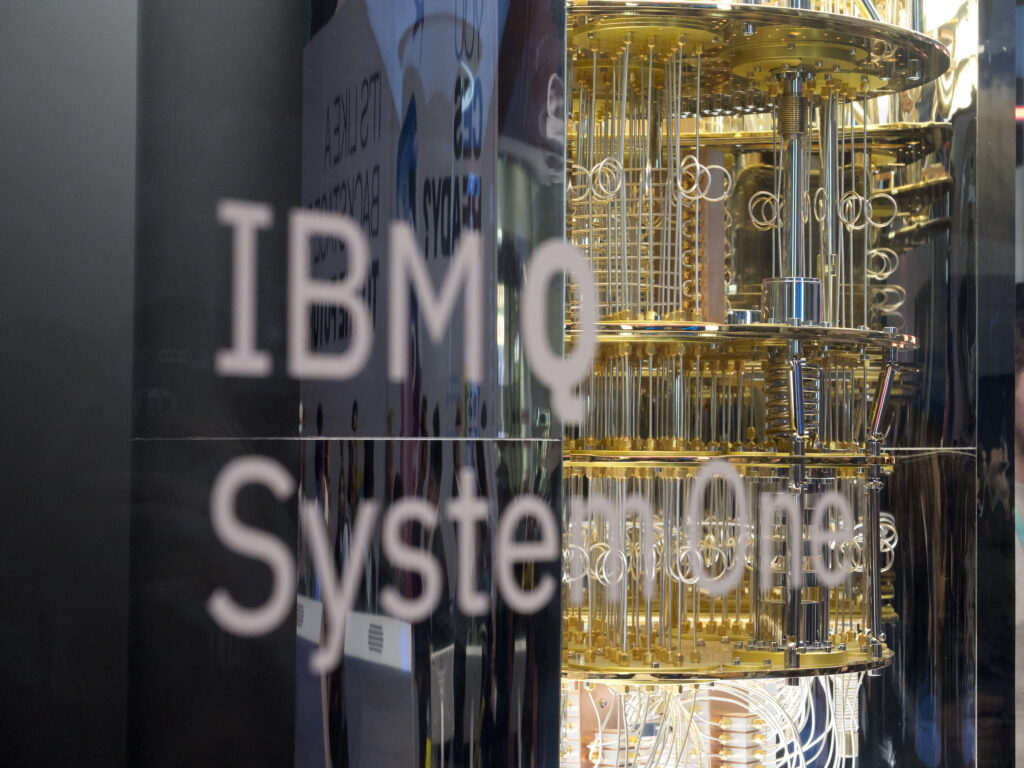In the ever-evolving landscape of technology, quantum computing has emerged as a revolutionary force with the potential to transform industries across the board. Among these industries, marketing stands out as an area ripe for disruption.
Quantum computers, harnessing the power of quantum mechanics, are poised to reshape marketing strategies, customer analytics, and data-driven decision-making processes. In this investigative article, we delve into the implications, effects, and possible future uses of quantum computers in the marketing industry.

The Quantum Computing Revolution
Quantum computers, unlike classical computers, operate on the principles of quantum mechanics, enabling them to process information at speeds unimaginable by current standards. Classical computers use bits to represent data, which are binary, either 0 or 1. Quantum computers, on the other hand, use quantum bits or qubits, which can exist in multiple states simultaneously due to the phenomenon of superposition. This property exponentially increases their computing power, making them well-suited for complex tasks that are currently beyond the capabilities of classical computers.
Implications for Marketing
1. Enhanced Data Analysis and Personalization
One of the most significant implications of quantum computing in marketing is its potential to revolutionize data analysis and customer personalization. Marketers currently rely on machine learning algorithms to analyze vast datasets and deliver personalized content. Quantum computers can process this data significantly faster, enabling marketers to generate more accurate customer profiles, predict behavior with greater precision, and create hyper-personalized marketing campaigns.
A quantum-powered marketing analytics platform could, for instance, process real-time data from various sources such as social media, online behavior, and purchase history to create dynamic customer profiles that evolve in real-time. This could lead to highly tailored marketing messages and recommendations that resonate more effectively with individual consumers.
2. Optimization of Marketing Strategies
Quantum computing can optimize marketing strategies by solving complex optimization problems at unprecedented speeds. This capability is particularly relevant in media planning, where marketers need to allocate budgets effectively across various channels and demographics. Quantum algorithms can determine the optimal allocation in real time, taking into account changing market dynamics and customer preferences.
Moreover, quantum computing can refine A/B testing and multivariate testing processes, allowing marketers to quickly identify the most effective campaign variations. This means faster iterations, quicker decision-making, and ultimately, more efficient marketing strategies.
3. Improved Customer Engagement and Retention
Quantum computing can enhance customer engagement and retention strategies by enabling the development of more sophisticated recommendation systems and dynamic pricing models. These systems can adapt in real time based on individual customer preferences, increasing the likelihood of conversion and repeat business.
For instance, an e-commerce platform equipped with quantum computing capabilities could adjust product recommendations in real-time as a customer browses, considering not only their current preferences but also their evolving interests and past interactions with the site.
Effects on Data Privacy and Security
While the potential benefits of quantum computing in marketing are promising, they also raise significant concerns regarding data privacy and security. Quantum computers have the potential to break current encryption methods used to secure sensitive customer data. As quantum computers become more powerful, they may pose a threat to the privacy of customer information, leading to a need for quantum-resistant encryption methods.
Marketers must stay vigilant and invest in robust cybersecurity measures to protect consumer data. This includes exploring post-quantum encryption techniques and ensuring compliance with evolving data privacy regulations, such as GDPR and CCPA.
Possible Future Uses of Quantum Computing in Marketing
1. Quantum Machine Learning
Quantum machine learning (QML) is an emerging field that combines quantum computing with machine learning algorithms. In marketing, QML could significantly improve predictive analytics, enabling more accurate forecasting of market trends, customer behavior, and campaign performance. Quantum neural networks, for example, could optimize recommendation engines to an unprecedented degree of precision.
2. Quantum-Enhanced Search Engines
Quantum computing could lead to the development of quantum-enhanced search engines, allowing marketers to access and analyze vast amounts of unstructured data quickly. This would be invaluable for market research, competitor analysis, and sentiment analysis in real-time.
3. Quantum Marketing Simulations
Quantum computers can simulate complex scenarios and models with incredible speed and accuracy. Marketers could use quantum simulations to create highly detailed and accurate models of consumer behavior, market dynamics, and advertising impact, allowing for better-informed decision-making.
The arrival of quantum computing on the scene represents a paradigm shift for the marketing industry. The implications are vast, from hyper-personalization and optimization of marketing strategies to improved customer engagement and retention. However, this quantum revolution also comes with challenges, particularly regarding data privacy and security.
As quantum computers continue to advance, it’s imperative for marketing professionals to stay informed about this disruptive technology. While quantum computing offers unparalleled opportunities, marketers must also prepare for the potential risks and uncertainties that come with it. In this era of rapid technological change, those who adapt to the quantum future will have a competitive edge in the ever-evolving marketing world.
Sources:
1. Arute, F., et al. (2019). Quantum supremacy using a programmable superconducting processor. Nature, 574(7779), 505-510.
2. Daskin, M. S., & Zhang, M. (2011). Quantum computing in supply chain management. Computers & Operations Research, 38(12), 1284-1297.
3. Stojanovic, J., & Phillips, P. (2019). The role of quantum computing in business analytics: An exploratory study. Journal of Computer Information Systems, 59(5), 452-462.